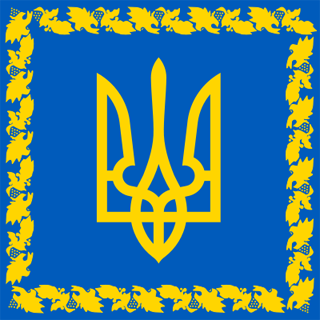Whisper it if you need. Dare to think it. But champion it you must. Ukraine’s counteroffensive is succeeding. Slowly but surely, the Ukrainian armed forces are breaking through the Russian lines. Sometimes yard by yard, sometimes village by village, Ukraine has the momentum and is pressing forward.
The men and women of the Ukrainian army are, once again, proving to us in Nato how much we have underestimated them. First, the Establishment doubted their ability to defend their nation from the initial Russian invasion. Too many states waited to see which way the wind would blow. The groupthinkers, with their computers and “Russia experience”, calculated that they could only hold on for a few weeks.
Having been proved wrong, they switched their pessimism to the counteroffensive. But they failed to grasp the importance of the human factor. They failed to spot in the Ukrainians the same spirit we possessed in 1939. They failed to recall Alan Turing’s quote that “Sometimes it is the people no one can imagine anything of who do the things no one can imagine.” They failed to understand that, in war, the most precious commodity of all is hope.
Since the summer, Ukraine has again been learning on the job. Its forces are adapting tactics, absorbing lessons, and making the best of the equipment we have all gifted them.
They take UK equipment and achieve success rates far beyond expectations. I remember visiting a secret location abroad, but outside Ukraine, as we prepared Ukrainian soldiers on how to use StarStreak air-defence missiles. They had a week to train on a system we take months to master. A British sergeant pointed to a young Ukrainian, barely out of his teens. “He won’t let go of the simulator, and he won’t stop training until he never misses,” he said. That young man went on to down two Russian attack helicopters.
When hope is combined with the right equipment, there is no stopping Ukraine. It is our duty to keep that hope going and to back it up with funding and equipment until the job is done. That was why the British NLAW anti-tank missiles were so important. They showed that Russian armour could be stopped. And stop them they did, in the hundreds on the road to Kyiv.
We have a chance to help finish this. The Russian army is cracking. Ukraine has learnt new tactics to overcome horrendous minefields, and the Storm Shadow strikes are devastating Russian HQs. We are witnessing the beginnings of the battle for Crimea.
We need to give Ukraine the support it requires to see this war to the end. As defence secretary, I was so often confronted with reasons not to – mainly by people who wouldn’t know the difference between one end of a rifle and the other. Time was wasted having to overcome institutional inertia. We should be proud of our Chief of the Defence Staff and military leaders who demonstrated not just leadership within Whitehall, but internationally.
Before I left office, I asked the PM to match or increase the £2.3 billion pledged to Ukraine this year, to add to the £4.6 billion we have spent already. The UK is no longer the biggest European donor – Germany is.
This war can be won. Vladimir Putin is failing. Just as the human emotion drives Ukraine to success, it is also the inescapable flaw in Putin and his criminal regime. Romance, ego and revenge drove Putin to cross into Ukraine and it will be his undoing. His army has lost more than 2,500 tanks, 6,500 armoured vehicles and nearly 300,000 dead or injured. Not a single commander who led the major Russian units into Ukraine is still in place.
Putin is desperately grasping at the final two things that can save him – time and the splitting of the international community. Britain can do something about both. We must help Ukraine maintain its momentum – and that will require more munitions, ATACMSs and Storm Shadows. And the best way to keep the international community together is the demonstration of success.
Ukraine can also play its part. The average age of the soldiers at the front is over 40. I understand President Zelensky’s desire to preserve the young for the future, but the fact is that Russia is mobilising the whole country by stealth. Putin knows a pause will hand him time to build a new army. So just as Britain did in 1939 and 1941, perhaps it is time to reassess the scale of Ukraine’s mobilisation.
Let us not pause for one day. Let us see this through. The world is watching to see if the West has the resolve to stand up for our values and the rules-based system. What we do now for Ukraine will set the direction for all of our security for years to come.


